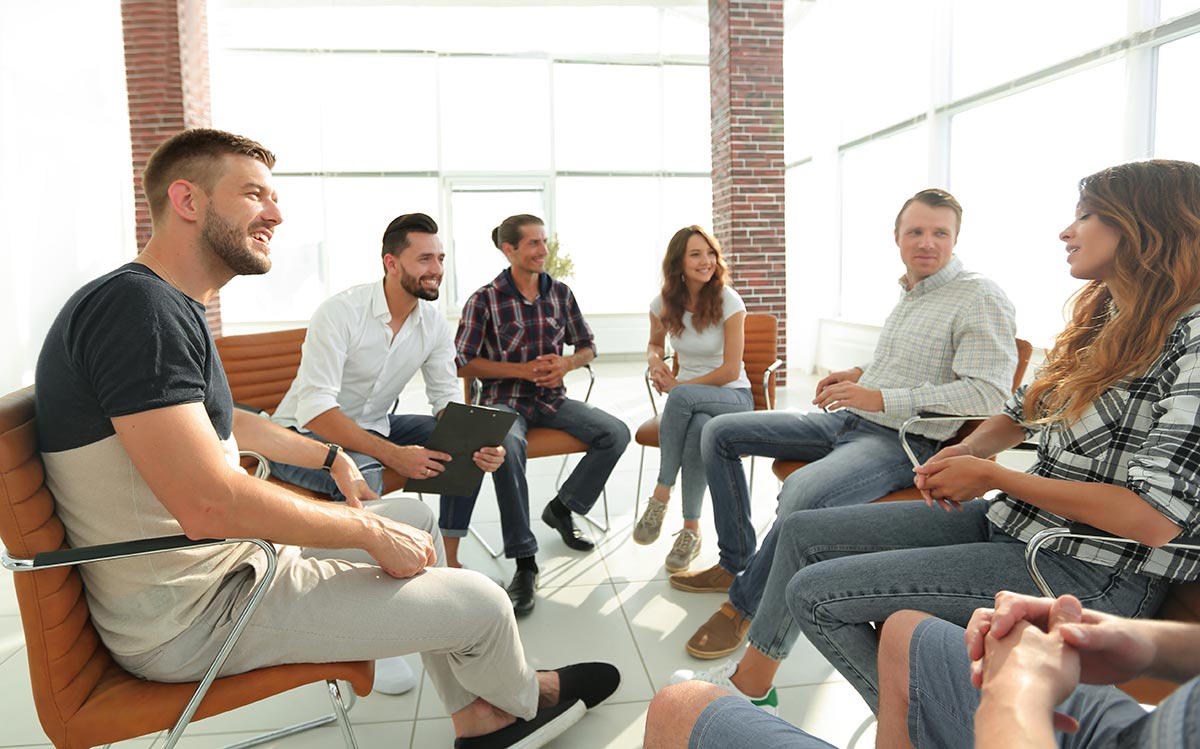The Importance of Peers in Addiction Recovery
Recovering from a substance use disorder is a long journey. Coming out of addiction means moving past learned behaviors, battling triggers and cravings, and moving past trauma. It also means overcoming the habits and problems that led you to addiction in the first place. During this recovery period, peers can help you by offering support, motivation, and assistance.
Self-help and support groups like AA and 12-step are extremely common, because having peers to assist you in recovery works. Studies show that peers hold you accountable, help to motivate you to move forward, provide inspiration, and can offer the help you need to walk away from cravings. A friend who has also recovered from a substance use disorder may also help you to recognize your own failings, and to move them, give insight into something you're struggling with, and give you someone to talk to, whom you know will understand you.
Peers help in different ways depending on your personality, level of addiction, and your social status and family, but can benefit in numerous ways.
Types of Peer Support
The Substance Abuse and Mental Health Services Administration (SAMHSA) strongly recommends peer support-based recovery solutions, including separate peer support therapy, self-help groups like AA, and other forms of peer-based complimentary treatment like SMART.
SAMSHA suggests that you should get a combination of emotional, informational, instrumental, and affiliational support from peers alongside mentoring and coaching.
Mentoring and Coaching
A peer who has been clean or sober for a long duration works with you to guide you on your journey to recovery. This is known as Sponsoring in AA, but is common in many types of peer-based support. Here, you are directly given knowledge, expected to learn, and are a student rather than an equal. Mentors and coaches can be crucial in situations where you have been addicted for a long period of time and need assistance, are confused or doubt yourself, or need help steering yourself away from cravings.
Friendship
Friendship is equally important in recovery. Having people, you can trust, whom you can lean on, and whom you can rely on to help you when you need it is a crucial part of the human experience. As a recovering addict, you miss a large part of the connection you would otherwise have with healthy people, because they cannot and often do not want to understand your experiences with substance abuse. Making friends who understand where you are coming from, your choices, and the cravings and trauma you face gives you people you can open up to, be honest with, and whom you can connect with, with no fear of judgment.
SAMSHA breaks this down into the following support levels:
- Emotional – Peer-mentoring and peer-led support groups offer emotional support and empathy, often working to provide support, to undo the effects of poor self-esteem, and help recovering addicts to build the self-esteem to recover.
- Informational – Classes, facilitators, coaches, and mentors offer support, learning, and knowledge which you can use to recover.
- Instrumental – Peers offer physical aid, like transportation, housing assistance, child care, help accessing health and social services, etc.
- Affiliational - Peers help you to meet new people, get involved with your community, and acquire a sense of belonging with others.
Peer support works because it offers a sense of belonging and accomplishment to those doing the teaching, and a sense of belonging and accountability to those just learning.
How Do You Benefit from Peers in Recovery?
Humans are social creatures at heart. Even when we're loners, we still crave attention, love, and care. Unfortunately, addiction causes us to withdraw from the same social support we need to stay mentally healthy. Recovering means stepping back into a social circle where family and friends don't understand you or how you've changed – and that can make reconnecting with them extremely difficult. Recovery groups and peer support services offer social benefits from people who do understand.
No Judgement
If you're in a recovery group, you know that everyone there is a recovering addict. You may face social stigma and judgment outside, but in the group, everyone is equal. This makes it easier to share, to talk about problems, and to discuss trauma so that you can move past it.
Sharing
Most peer groups focus on sharing and problem solving, using personal stories to discuss things you learned or what motivated you – and sharing your problems so that you can get support as a group.
Learning
Most peer support groups give you the opportunity to learn new skills, like social skills, dealing with cravings, and taking care of yourself. Many also encourage you to learn new life skills, and may host classes on budgeting, cooking, nutrition, and much more.
Helping Others
Peer-support groups allow you to get help from others, but asks that you help others in return. This can help you to feel needed, valuable, and to feel good about yourself. You can help people in the same way they are helping you, by listening, offering your story, and eventually, guiding a newly clean or sober person towards their own recovery.
Accountability
Knowing that you have a group of people trusting you to stay clean or sober, whom you have to report to, and who are also struggling with their own cravings can be immensely helpful in pushing you to stay clean or sober. Just like many people find exercise motivation in social media, social support and accountability through a support group of your peers will keep you accountable, because you know that if you slip up, you aren't just letting yourself down.
Social Interaction
Recovering addicts are often left with large gaps of time, where it's difficult to spend time with friends or family and you would previously have been using or drinking. For example, when regular friends and family go out drinking, when family members haven't forgiven you, and when you would have gotten high or started drinking in the past. Social interaction with sober peers gives you a productive and healthy way to spend your time, while preventing you from becoming lonely.
The benefits of peers in addiction recovery can change dramatically depending on you, your friends, and your social situation, but everyone benefits from having a social group and peer support.
Getting Help
The first step to recovering from substance abuse is detox. Afterwards, you likely have to approach your psychological behavior and emotional distress to learn how to live without substances, learn how to deal with cravings and triggers, and learn to heal the problems that led to substance abuse in the first place. A good rehab program will include medical detox to prevent dangerous withdrawal symptoms, cognitive behavioral therapy, family therapy, and group support for peer therapy and socializing.
Studies show that peer support and peer groups can be beneficial as part of or following a recovery treatment program. However, support groups are not therapy. You need both to make a full recovery.
No matter what form of peer support you seek out, good luck with your recovery.
If you are looking for a modern and effective addiction treatment center in Southern California, feel free to contact Anaheim Lighthouse today , we’re here to help.















